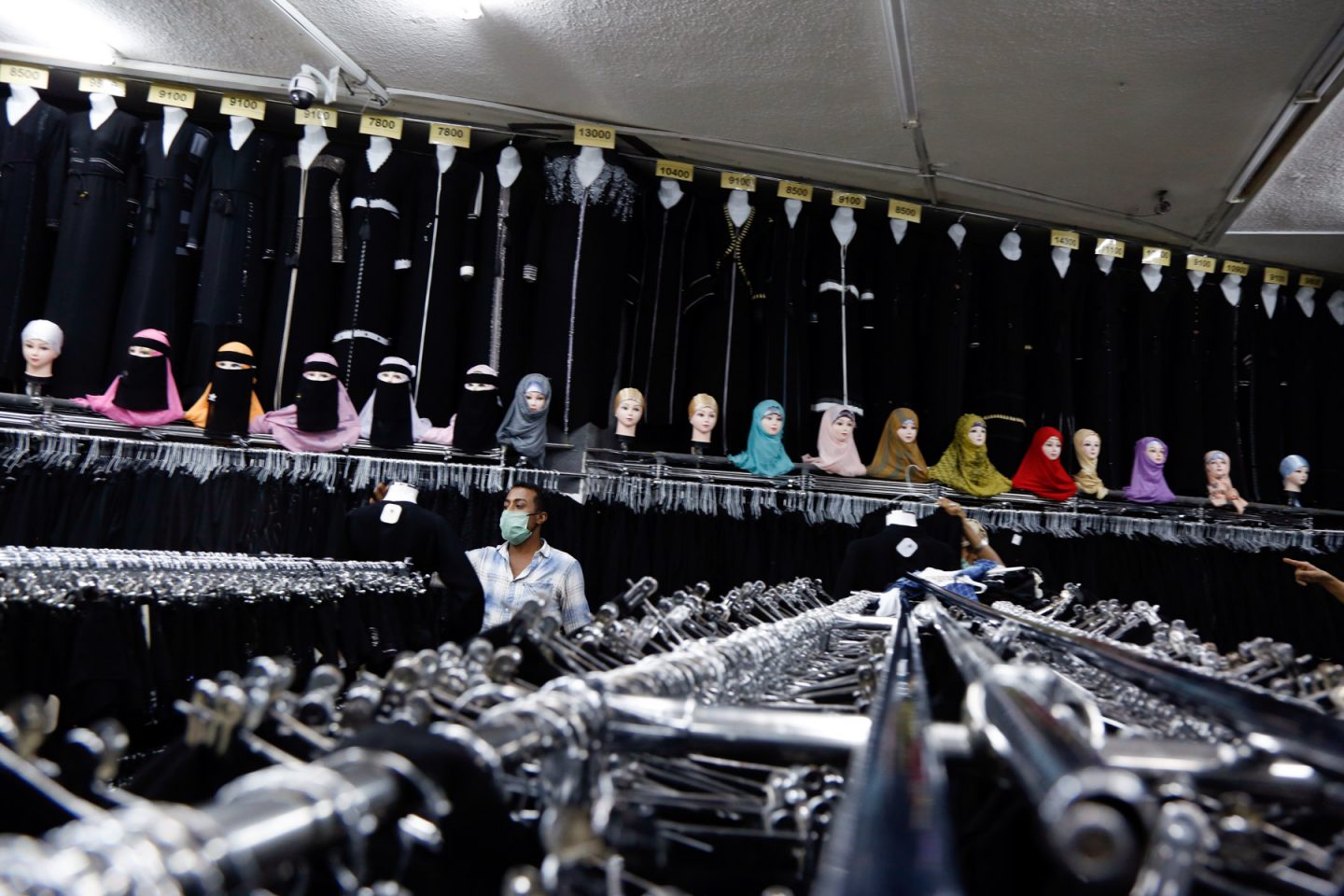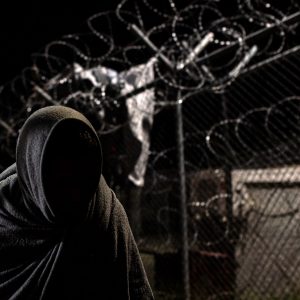Covid-19 deepens the crisis in war-torn Yemen
The coronavirus outbreak has left millions at the mercy of the country’s warring factions, which will not stop fighting, despite an escalating humanitarian emergency.
Author:
27 May 2020

A coronavirus catastrophe is unfolding in Yemen, which has been ravaged by civil war since 2015. The Covid-19 pandemic has now exacerbated the situation for millions of people in the famine-stricken nation, where the healthcare system has, in effect, collapsed.
One of the Arab world’s most impoverished nations, Yemen is located on the southern tip of the Arabian Peninsula, and has been beleaguered by civil war between the Saudi-backed government based in Aden, and its rivals in the north, the Houthis, who are aligned with Iran. Thousands of civilians have been killed and tens of thousands injured as a result of hundreds of airstrikes launched by the Saudi- and Emirati-led coalition that has been attempting to regain control of areas taken by Houthi rebels.
As per the aid agency International Rescue Committee (IRC), the relentless airstrikes by the coalition forces have arbitrarily hit residential homes and public areas such as schools, health facilities and markets, leaving a trail of destruction that has cut off people’s access to food, medicine and clean water. Hunger, malnutrition and diseases like cholera have been prevalent across the country, making it one of the world’s most severe ongoing humanitarian disasters. An estimated 80% of Yemen’s population is said to be in need of emergency relief and assistance.
Related article:
Following the Covid-19 outbreak, the healthcare crisis is projected to get worse, with aid agencies warning of another calamity looming over the existing one, which may escalate deaths. The IRC noted that in many crisis-affected countries such as Yemen, for which Covid-19 data is either incomplete, inconsistent or absent entirely, tracking the spread of the virus, particularly among the most vulnerable, is all the more difficult.
On 22 May 2020, the United Nation warned that the situation in Yemen is “extremely alarming” and the country is “on the brink” of a humanitarian disaster. “Aid agencies in Yemen are operating on the basis that community transmission is taking place across the country,” spokesperson for the UN Office for the Coordination of Humanitarian Affairs Jens Laerke noted.
On 10 April, Yemen’s first case of Covid-19 was confirmed in Hadhramaut, sparking panic among its conflict-battered population. The virus-related cases have now been reported in 10 governorates: Aden, Hadramaut, Taizz, Lahj, Abyan, Al Maharah, Shabwah, Marib, Al Dhale’e and Sana’a City. Yemen has reported 184 cases and 30 fatalities, but “the actual incidence is almost certainly much higher,” Laerke said, adding: “They are talking about having to turn people away because they do not have enough [medical] oxygen, they do not have enough personal protective equipment.”
Sick at home
In the country’s interim capital, Aden, international aid group Doctors Without Borders, or Medecins Sans Frontieres (MSF), noted that the virus-related death toll at a medical centre it runs in southern Yemen confirms “a wider catastrophe unfolding” in the country. MSF’s facility in Aden admitted 173 patients between 30 April and 17 May, at least 68 of whom have died. Many patients that arrived at the centre, MSF stated, were already suffering from acute respiratory distress syndrome, making it hard to save their lives and suggesting that many more people are sick at home.
“What we are seeing in our treatment centre is just the tip of the iceberg in terms of the number of people infected and dying in the city,” MSF’s operations manager for Yemen, Caroline Seguin, said in a statement. “People are coming to us too late to save, and we know that many more people are not coming at all: they are just dying at home.”

Yemen’s UN-recognised government based in the south has confirmed 197 cases nationwide, with 33 fatalities. The tally, however, does not include confirmed cases in the country’s north, which is under the control of Houthi rebels who are accused of concealing the magnitude of the coronavirus outbreak by suppressing numbers and intimidating journalists and doctors. Contrary to low government estimates, UK-based humanitarian organisation Save the Children operating from Aden earlier also noted that at least 385 people in the port city had died of coronavirus-like symptoms.
An estimated nine million people receive health services at 189 hospitals and 200 primary healthcare centres across Yemen. But new data published by the IRC reveals Yemen has one of the lowest testing numbers, even compared with other conflict-affected countries, at 31 tests per million. The country has around 500 ventilators and 700 intensive care unit beds. There are 100 oxygen cylinders per month for every 2.5 million people.
Aid groups pull out
Yemen is home to the UN’s largest humanitarian operation, with a price tag of $3.2 billion with an estimated 24 million people believed to be in need of aid in the country. But funding shortages are forcing its agencies and partner non-governmental organisations to scale back their work this year. The UN is reportedly believed to have pulled out over half its remaining international staff from Yemen’s capital to protect them. Almost 100 UN staff members are reported to have left the country on 12 May and on 17 May, bringing the number of foreign UN staff in the capital to about 60, down from 158.
James Cleverly, the British Foreign Office minister for the Middle East and North Africa, also accused the Houthi rebels of stopping coronavirus cases from being recorded and endangering millions of Yemeni lives by fuelling the conflict through their continued aggression, despite global calls for a truce to tackle the Covid-19 outbreak. “It is deeply concerning that some of Yemen’s leaders have shirked their responsibilities and sought to use the crisis to serve their own narrow agendas,” he wrote in The National.

Cleverly noted that across the country there are “needless restrictions” on the international humanitarian response that prevent aid from getting to those who need it most. “In Houthi-controlled areas, these restrictions are so severe that they are preventing the delivery of aid to millions of people in need,” he said.
In 2015, Saudi Arabia and its allies began a military intervention in Yemen as part of an effort to unseat the Houthis and restore former President Abdu Rabbu Mansour Hadi to power. It is estimated that 100 000 people in Yemen have been killed since early 2016. There have been more than 1 100 conflict-related civilian casualties in the last year alone with 3.6 million uprooted as a result of the war. According to Unicef, more than 50% of people in Yemen do not have access to safe water and over two million children and pregnant women suffer acute malnutrition.
No ceasefire
In April this year, the Saudi-led coalition extended a unilateral ceasefire in Yemen by one month to support efforts to contain the coronavirus pandemic, even as the Houthi rebels rejected the earlier two-week ceasefire declared by the military coalition. Following the ceasefire announcement, the UN Special Envoy for Yemen, Martin Griffiths, told the UN Security Council of progress toward a truce in closed-door talks between the Saudis and Houthis, with agreement expected in the immediate future. The catalyst toward peace was the virus, Griffiths said, noting that Yemen could not “face two fronts at the same time: a war and a pandemic”.
According to the Norwegian Refugee Council (NRC), despite global calls for cessation of violence during the coronavirus pandemic, Saudi-led airstrikes in Yemen continued, with other parties also undertaking armed operations resulting in the displacement of 24 000 people since 23 March. “With new [coronavirus] cases spreading rapidly, Yemen is heading for a catastrophe on top of a catastrophe,” the organisation asserted.

Further compounding the crisis, the UN’s Food and Agriculture Organization (FAO) has noted that Yemen, which is already on the brink of famine, could face “catastrophic” food shortages due to supply problems connected to the coronavirus pandemic. “The health system [in Yemen] was already under heavy stress and it will now be overwhelmed if Covid-19 continues to spread,” the FAO’s assistant director-general Abdessalam Ould Ahmed said in a statement.
In another report, New York-based Human Rights Watch (HRW) observed that a recent surge in fighting in Yemen had further threatened millions of displaced people packed into dangerously overcrowded displacement camps with substandard healthcare and inadequate access to clean water, sanitation and other essential services. “Given Yemen’s existing humanitarian crisis, battered health system and the imminent threat of a cholera outbreak, Marib’s displaced people now face the double threat of renewed fighting and the uncontrolled spread of a dangerous virus,” HRW’s Yemen researcher, Afrah Nasser, underlined.
Related article:
An article published in leading medical journal The Lancet concluded that given the humanitarian situation and conflict within Yemen, the effect of the Covid-19 pandemic could be “disastrous”, asserting that the fragile situation and fragmented authorities in the country were major challenges that hinder implementing international health regulations and related legislation and policies during disease outbreaks. “Yemen has structural vulnerabilities that have developed over a protracted period of conflict and poor governance, and its health system has suffered the most,” it said, adding that to prevent a total collapse of the country’s fragile health system, the government and the international community should act more decisively.
With the warring factions in Yemen unlikely to stop fighting, the prospects for the country remain bleak. A large-scale outbreak of the coronavirus will have devastating consequences for this impoverished nation, already suffering from what the UN has termed as the world’s worst humanitarian crisis.


